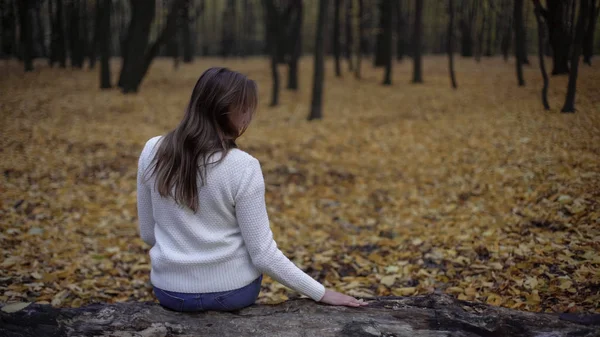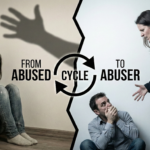Death and dying are inevitable and a part of life. However, the sudden death of a loved one poses an entirely different challenge that very few of us are truly prepared for. And yes, I do consider the death and dying of a loved one as a traumatic event. There are just too many emotions, thoughts, and behaviors for me to address all of them in this blog. However, I will address some of my client’s experiences, as well as my own.
When we suddenly lose a loved one, the level of impact it has on you depends on your state of mind prior to the event. The healthier your mental health before the event, the more capable you are of fully recovering within a reasonable period of mourning. In my case, I was not in a healthy state and was blindsided and devastated to the point of hopelessness. You will have to gauge your own state of mind prior to your event.
Whether you lost a mother, father, husband, child, or loved one, the grieving process can be long, and sometimes debilitating, especially if you were not in a healthy state. For me, it took 4 years and a horrible plunge into an abyss before finally coming to grips with my grief and the unhealthy life I was living before the event. Depending on the conditions of the death, you may feel survivors’ guilt, shame, guilt itself, and distorted beliefs such as I “coulda,” “shoulda,” “woulda” (SCW) done more “if”. These kinds of thoughts can just overwhelm you as they did in my case.
I can fill a book with all the scenarios that surround the death and dying of loved ones. But for this post, let me just highlight the issue of the sudden loss of a loved one, something I experienced. Even a sudden loss can come in various forms (e.g., acute medical event, accidents, victim of a crime, suicide, overdose, etc.). What is consistent with all the forms is the shock that paralyzes us and sends us spiraling downward.
The sudden death of a loved one can leave us paralyzed for days, months, years, and sometimes for the rest of our lives. The abruptness and the circumstances will dictate different reactions. For me, it left me paralyzed with grief, flashbacks, depression, and doubts for years including blaming myself for things that I later learned were not my fault. Things like “I should have” been able to save my loved one, or “I could have” acted faster.
I based my trauma model, Resolution Focused Therapy (RFT), on my own journey through hell and back. I learned the hard way that my unhealthy state of mind prior to my event was the true culprit at play. Prior to my event, I was not happy or healthy, and was not grounded in any healthy way to cope. Simply put, I was an accident waiting to happen, and it happened. I was not prepared for what was about to hit me.
There are many groups, books, videos, treatment models and more on the grieving process. There are stages of grief that are explained in these materials. If you have used the standard processes published on grief and it was helpful for you, then I am happy for you. But, if you have resorted to these standard clinical practices and they have not helped you, maybe it is time to recognize that there is more at play when facing death and dying issues.
My tragic experience put me front and center with my personal demons and left me questioning my thoughts, beliefs, and my actions. I learned over a 4-year plunge that the only way back from hell was to face my own demons at play and deal with them. It meant addressing my unhealthy state of mind and
subsequent self-destructive path. It meant challenging all my distorted beliefs around my “SCW” dilemma.
This blog post is not about the details of my journey, at least not yet. It is about knowing your current state of mind, or the state of mind you were in with your event. It is about knowing there are advantages to learning more about you and your beliefs before another event happens. And it will happen because no one avoids the death and dying of loved ones. I know from my own experience that a healthy state of mind keeps life events in perspective. I know this because after my 4-year plunge I was hit again with a death and dying experience of a loved one. This time, I was in a much better state of mind and the outcome was vastly different than the first time. This time I cried, grieved, and kept it in perspective. It did not mentally cripple me as the first event did.
I wanted to share a piece of my own experience with loss to help those searching for peace after such a tragedy occurs. I wanted you all to know that seeking peace within yourselves will prepare you for life’s events that will happen.
We all recognize our time on this earth is limited. We all know that death is a natural event. What we do not realize, or can be prepared for, is when it is sudden. This form of trauma will never be easy to grieve but can be tolerable if you are in a healthier space when it happens.
For those that have already experienced a sudden death of a loved one and like me, were not in a healthy place, I can tell you from my experiences, the road to recovery from such an event will not be easy, but there is hope. It will now have to be addressed as a past unresolved event and may need extra time for healing. Just remember this, none of us are perfect, and all of us can always do better, but it is how we view the death that will need to be addressed and it can be changed. I have listed at the end a couple of websites if you feel you need immediate help.
For those who have not experienced a sudden death of a loved one, I say to you, take toll of your lives and your mental health conditions. If you are someone not content, do the work that gets you in a healthier mind, body, and spirit. It will be worth the effort!
http://www.griefspeaks.com/id76.html
Mind, Body, Spirit…Balance!
Vinnie Strumolo, CEO, CCO, LMFT






